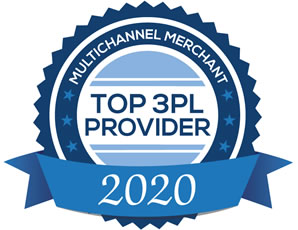
Dan Cence, CEO Sprocket Express
When you choose a fulfillment house, there are a lot of considerations. You are choosing a partner, more than a simple vendor. The company you select will be responsible for storing, packing, and shipping your product. They are the last hands that will pass your product to your customer and that partner’s integrity is essential.
So, how can you truly evaluate your options and choose the best fulfillment partner? Here are some points to consider.
Partnership Engagement: When you place your products in someone else's hands, you want to be sure that company is engaged with your business as a partner. They must care about quality, speed, accuracy, and condition of your products. Will they anticipate and accommodate your needs? Read reviews and ask questions about their existing clients. A few war stories will give you a good idea of the company’s attitude.
Technical Expertise: The best fulfillment centers send shipping confirmations with tracking information directly to your customers, as well as back into your e-commerce system. Their software platform should support real-time inventory viewing, complete order data, and secure data transmission. Modern warehouses also integrate with multiple markets and carts, which makes it easier (and less expensive) to sell more of your products to more people without manual order entry.
Charges and Fees: Pick and pack fees are pretty easy to compare, as long as you take into account the volume appropriate to your business. But don't forget storage fees, prices for special handling or rush orders, monthly minimums, late payment penalties, receiving, international order paperwork. Ask for a complete fee schedule with your quote to avoid surprises later.
Convenience of Location: Expectations for quick delivery are at an all-time high, but not every product need be stored in multiple locations across the country. There are benefits to doing business with a warehouse that is close to major shipping routes, but also local enough that you can visit the premises.
Customer Service: Technology can only get you so far. When you need to ship a last-minute order, or deviate from the process, there is no replacement for speaking to a human being. Find out how these situations are handled when you interview a new logistics provider. 
Specialty Warehousing: If you sell food items or nutritional supplements, you know that not every warehouse can accommodate the required climate controls and FDA compliance. Fulfillment centers that handle t-shirts and clothing can often provide bagging services to separate bulk shipments. What are some of the unique needs of your business?
Accuracy: Mistakes do occur, but they should be very rare. A good fulfillment center should be able to tell you their accuracy rate and their policy to correct or compensate for errors.
Liability: Be aware that fulfillment centers do not insure the client's goods for loss or damage. When you choose a new warehouse, make sure to speak to your insurance provider to make sure you have adequate coverage for your goods at the new location.
Additional Services: Thinking ahead, you may need kits or assemblies, specialty packaging, labeling, web design, or other business services. Ask about the center's expertise in these areas. As you grow, you want to make sure your fulfillment partner will grow with you.
The initial conversation can be very illuminating. If the communication is poor or generic at the beginning, it will not improve. References are a good way to gauge the character of a fulfillment center. Make sure to call at least two or three existing clients and don't be afraid to ask the uncomfortable questions.
Fulfillment is not one size fits all, so get specific when you talk to a new vendor. With good planning and preparation, your move to a new eCommerce fulfillment warehouse just might be the best move you make for your business!
Business Tips and Industry News
For more news and tips on all things business and e-commerce, visit our e-zine. Our e-zine is also available as an rss feed.



